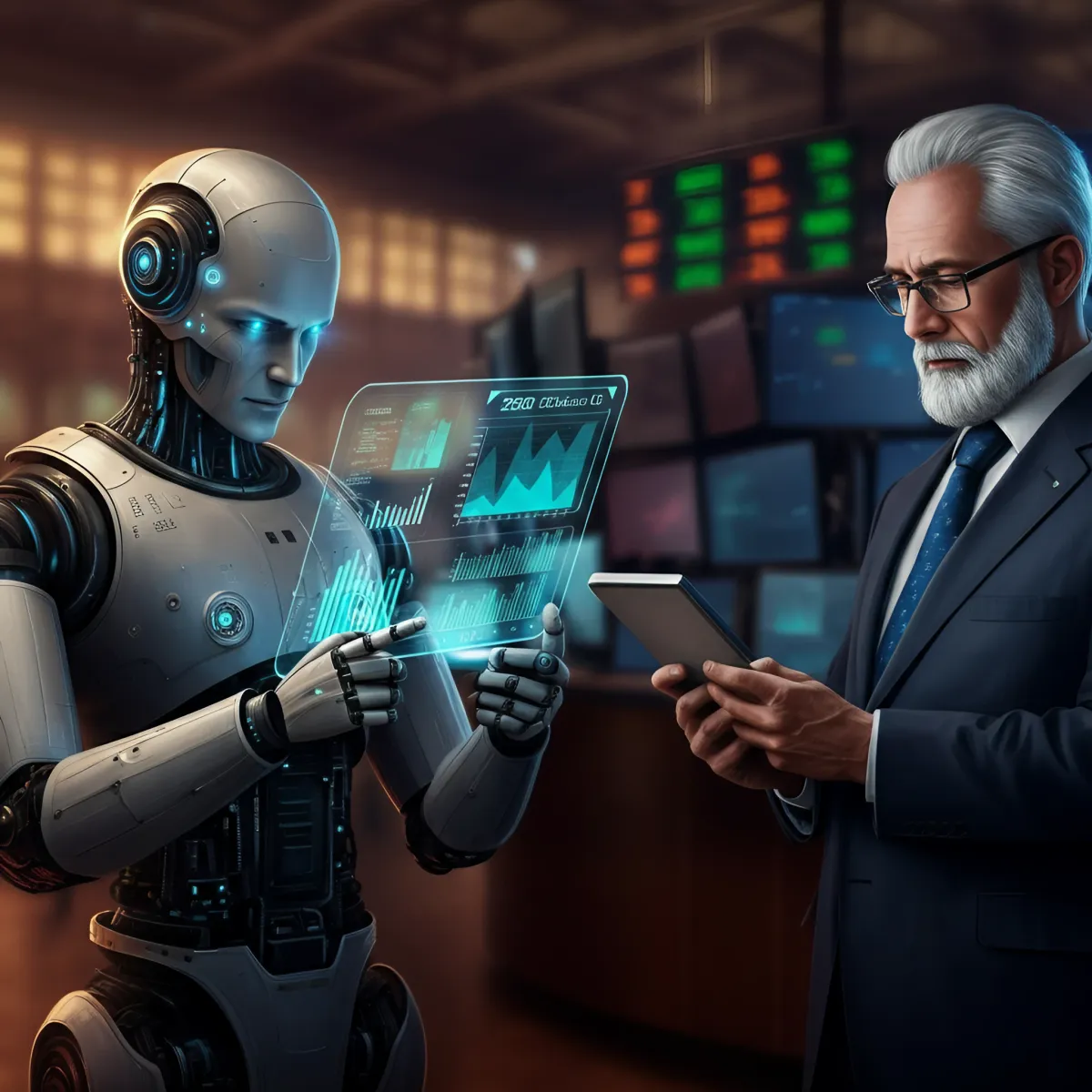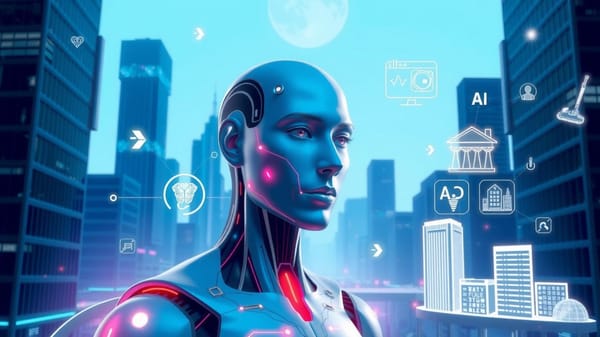AI vs. Human Investors: Who Wins in the Stock Market?
AI is reshaping investing, but can it outperform humans? While AI offers speed and data-driven precision, human intuition and strategy remain crucial. Discover the strengths, weaknesses, and the future of AI vs. human investors—plus, unlock exclusive AI investing insights with Plutus+ Membership! 🚀

The stock market has always been a challenging arena, where experience, intuition, and meticulous analysis determine success. However, recent advancements in artificial intelligence (AI) are reshaping the investment landscape entirely. With AI-driven tools capable of analyzing vast datasets and executing trades seamlessly, the financial world is split on one critical question:
Can AI outperform human investors, or does human intuition still reign supreme?
This blog explores the rising influence of AI in the stock market, its strengths and limitations, the enduring value of human expertise, and why blending the two might be the ultimate strategy.
The Rise of AI in Investing
The integration of AI into financial markets has been nothing short of revolutionary.
1. Algorithmic and High-Frequency Trading
AI has brought unparalleled precision to algorithmic and high-frequency trading. Hedge funds and investment firms use machine learning models to analyze market trends and execute thousands of trades within microseconds.
✅ Example: Systematic hedge funds using algorithmic models saw a 1.7% return during market volatility driven by the launch of AI chatbot DeepSeek (MarketWatch).
2. Robo-Advisors for Retail Investors
AI has democratized investing by introducing robo-advisors. Platforms like Betterment and Wealthfront use AI to offer automated portfolio management at a fraction of traditional costs. These tools optimize investments based on user goals and risk tolerance.
3. AI-Powered Funds and Tools
Companies like Qraft Technologies are proving AI’s potential.
✅ Example: Qraft’s AI-enhanced ETF gained 38% in 2024, outperforming the S&P 500, thanks to AI’s ability to identify growth opportunities in stocks like Nvidia.
AI investing is on the rise—but does that mean it’s flawless? Let's examine its strengths.
Strengths of AI Investors
AI brings several key advantages that explain its rapid adoption in investing:
1. Real-Time Data Processing
AI can analyze financial reports, news, and social media in real-time.
✅ Example: ChatGPT-4 predicted stock price movements based on news headlines with 60% accuracy, outperforming human financial analysts (Forbes).
2. Speed and Efficiency
AI executes trades in milliseconds, ensuring instant reactions to market trends.
3. Emotion-Free Decision Making
Unlike humans, AI doesn’t panic sell or chase hype stocks—it remains unbiased and logical.
4. Pattern Recognition
AI identifies hidden trends in markets that humans may overlook, improving decision-making.
5. Backtesting and Optimization
AI simulates thousands of investment strategies using historical data, optimizing for maximum returns.
Despite these advantages, human investors have qualities AI cannot replicate.
Strengths of Human Investors
1. Intuition and Experience
Humans make decisions based on intuition, gut feelings, and years of experience—factors AI cannot quantify.
✅ Example: Human investors successfully navigated the 2008 financial crisis and COVID-19 market volatility by adapting in ways AI models struggled with.
2. Adaptability
Markets change unexpectedly due to wars, pandemics, and policy shifts. Humans adjust strategies in real-time better than AI.
3. Strategic Thinking
Investing isn’t always about predicting trends—sometimes it requires taking calculated risks beyond historical data.
4. Understanding Market Sentiment
Humans interpret emotions, trends, and irrational behaviors—a skill AI cannot fully replicate.
Even with their strengths, human investors aren’t perfect, and AI has clear limitations too.
Limitations of AI in Investing
1. Overfitting and Data Bias
AI relies on historical data, which does not always predict the future accurately.
2. Lack of Contextual Awareness
AI struggles with unprecedented events (e.g., wars, sudden regulatory shifts, pandemics).
3. Vulnerability to Anomalies
✅ Example: Knight Capital’s $460M loss in minutes was caused by an AI trading error, highlighting risks.
4. Dependence on High-Quality Data
If AI trains on flawed data, its decisions become unreliable.
Case Study Comparisons: AI vs. Human Performance
✅ AI Success Story: Systematic hedge funds driven by AI models outperformed human-managed funds, achieving 3.3% returns in 2025, while human-driven funds saw 1.5%.
✅ Human Intuition in Crisis: Human investors excelled during the 2008 financial crisis and COVID-19, proving the value of adaptability and intuition.
Harnessing AI and Human Insights for Better Investments
AI is revolutionizing investing, but it isn’t replacing human intuition—it’s enhancing it. The most effective investors leverage both AI-driven insights and strategic human judgment to make informed decisions.
Your Next Move: Join Plutus+
AI is powerful, but knowing how to use it is the key. That’s where Plutus+ comes in.
- 🔓 Get exclusive step-by-step guides for AI-powered business strategies.
- 📊 Access monthly reports on automation trends and income hacks.
- 💼 Discover proven strategies used by top-earning solopreneurs.
- 💬 Join a private mastermind community for ongoing support.
Start your 3-day free trial today: www.plutusplus.com



